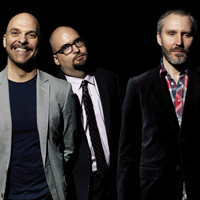The Bad Plus
For the past ten years The Bad Plus Reid Anderson, Ethan Iverson and David King have broken down the walls of jazz convention and created an uncompromising body of work. Few jazz groups in recent memory have amassed such acclaim, and few have inspired such controversy.
Colin Fowler, piano/organ
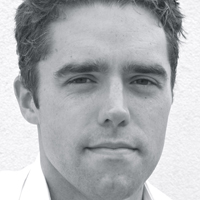 Colin Fowler hails from Kansas City, Kansas and began studying piano at the age of five. After attending Interlochen Arts Academy, he received his Bachelors and Masters degrees at The Julliard School, where he studied organ with Gerre Hancock and piano with Abbey Simon. He has played and directed music across the country, at venues including Carnegie Hall, Alice Tully Hall, Jazz at Lincoln Center, and The Library of Congress.
Colin Fowler hails from Kansas City, Kansas and began studying piano at the age of five. After attending Interlochen Arts Academy, he received his Bachelors and Masters degrees at The Julliard School, where he studied organ with Gerre Hancock and piano with Abbey Simon. He has played and directed music across the country, at venues including Carnegie Hall, Alice Tully Hall, Jazz at Lincoln Center, and The Library of Congress.
Gamelan Sari Raras
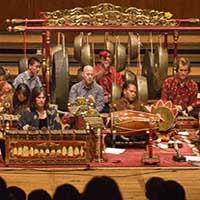
Gamelan Sari Raras, founded and co-directed by Midiyanto and Ben Brinner, is an ensemble in the Department of Music at U.C. Berkeley. Widely recognized as one of the leading Javanese music ensembles outside Indonesia, Sari Raras has performed concerts, shadow plays, and performances of Javanese dance and music throughout Northern California over the past twenty-five years.
Joshua Gersen, conductor
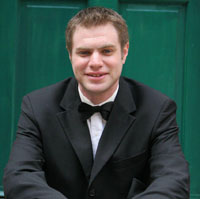 Joshua David (J.D.) Gersen, winner of the prestigious 2011 Aspen Conducting Prize, as well as the 2010 Robert J. Harth Conducting Prize from the Aspen Music Festival, made his conducting debut at age 11 with the Greater Bridgeport Youth Orchestra in Bridgeport, CT, and his professional conducting debut 5 years later, when he led the Greater Bridgeport Symphony in a performance of his own composition, A Symphonic Movement.
Joshua David (J.D.) Gersen, winner of the prestigious 2011 Aspen Conducting Prize, as well as the 2010 Robert J. Harth Conducting Prize from the Aspen Music Festival, made his conducting debut at age 11 with the Greater Bridgeport Youth Orchestra in Bridgeport, CT, and his professional conducting debut 5 years later, when he led the Greater Bridgeport Symphony in a performance of his own composition, A Symphonic Movement.
Ethan Iverson
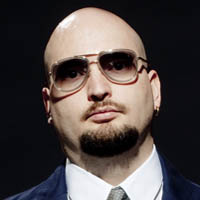 Ethan Iverson is best known as one-third of The Bad Plus (TBP), a game-changing collective with Reid Anderson and David King. The New York Times has said that TBP is “…Better than anyone at melding the sensibilities of post-60’s jazz and indie rock.” TBP performs in venues as diverse as the Village Vanguard, Carnegie Hall, and Bonnaroo; collaborators include Joshua Redman, Bill Frisell, and the Mark Morris Dance Group. They have released ten CD’s of mostly original material.
Ethan Iverson is best known as one-third of The Bad Plus (TBP), a game-changing collective with Reid Anderson and David King. The New York Times has said that TBP is “…Better than anyone at melding the sensibilities of post-60’s jazz and indie rock.” TBP performs in venues as diverse as the Village Vanguard, Carnegie Hall, and Bonnaroo; collaborators include Joshua Redman, Bill Frisell, and the Mark Morris Dance Group. They have released ten CD’s of mostly original material.
Brooklyn Rider, string quartet
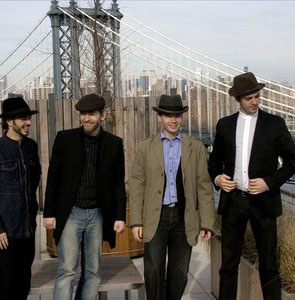
 Hailed as “the future of chamber music” (Strings), the game-changing string quartet Brooklyn Rider offers eclectic repertoire in gripping performances that continue to attract legions of fans and draw rave reviews from classical, world, and rock critics alike. NPR credits Brooklyn Rider with “recreating the 300-year-old form of string quartet as a vital and creative 21st-century ensemble”; the Los Angeles Times dubs the group “one of the wonders of contemporary music”; and Vice likens its members to “motocross daredevils who never screw up a stunt.”
Hailed as “the future of chamber music” (Strings), the game-changing string quartet Brooklyn Rider offers eclectic repertoire in gripping performances that continue to attract legions of fans and draw rave reviews from classical, world, and rock critics alike. NPR credits Brooklyn Rider with “recreating the 300-year-old form of string quartet as a vital and creative 21st-century ensemble”; the Los Angeles Times dubs the group “one of the wonders of contemporary music”; and Vice likens its members to “motocross daredevils who never screw up a stunt.”
Kevin Fox, conductor
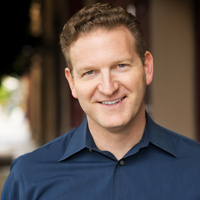 Kevin Fox, Founding Artistic Director of the Grammy-winning Pacific Boychoir Academy (PBA), is one of America’s few full-time boys choir directors. The Los Angeles Times called PBA’s musical sophistication and quality of sound “Astonishing”. Starting in 1998 with six choristers, Mr. Fox now runs the music program for over 170 students in PBA’s after-school program and day school, the only full-time choir school on the West Coast, where students’ daily music studies are integrated into a full academic curriculum.
Kevin Fox, Founding Artistic Director of the Grammy-winning Pacific Boychoir Academy (PBA), is one of America’s few full-time boys choir directors. The Los Angeles Times called PBA’s musical sophistication and quality of sound “Astonishing”. Starting in 1998 with six choristers, Mr. Fox now runs the music program for over 170 students in PBA’s after-school program and day school, the only full-time choir school on the West Coast, where students’ daily music studies are integrated into a full academic curriculum.
Jennifer Frautschi
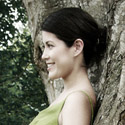 Two-time GRAMMY nominee and Avery Fisher career grant recipient Jennifer Frautschi has gained acclaim as an adventurous musician with a wide-ranging repertoire. As the Chicago Tribune wrote, “violinist Jennifer Frautschi is molding a career with smart interpretations of both warhorses and rarities.” Equally at home in the classic repertoire as well as twentieth and twenty-first century works, in recent seasons she has focused on such composers as Berg, Schoenberg, Prokofiev and Schumann, and premiered several new works composed for her.
Two-time GRAMMY nominee and Avery Fisher career grant recipient Jennifer Frautschi has gained acclaim as an adventurous musician with a wide-ranging repertoire. As the Chicago Tribune wrote, “violinist Jennifer Frautschi is molding a career with smart interpretations of both warhorses and rarities.” Equally at home in the classic repertoire as well as twentieth and twenty-first century works, in recent seasons she has focused on such composers as Berg, Schoenberg, Prokofiev and Schumann, and premiered several new works composed for her.
Hudson Shad
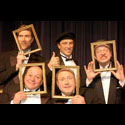 Though the six-man ensemble Hudson Shad (five singers and a pianist) debuted officially in 1992, their nucleus formed in 1977 when three of them made their Carnegie Hall debuts as soloists in Penderecki’s Magnificat. Throughout the late ’70s and ’80s, their members were in demand as early music specialists, oratorio soloists and opera singers, and most of them sang at one time or another as Gentlemen of the Choir at St. Thomas Church in NYC.
Though the six-man ensemble Hudson Shad (five singers and a pianist) debuted officially in 1992, their nucleus formed in 1977 when three of them made their Carnegie Hall debuts as soloists in Penderecki’s Magnificat. Throughout the late ’70s and ’80s, their members were in demand as early music specialists, oratorio soloists and opera singers, and most of them sang at one time or another as Gentlemen of the Choir at St. Thomas Church in NYC.
Eric Jacobsen, conductor
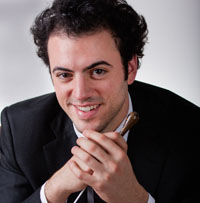
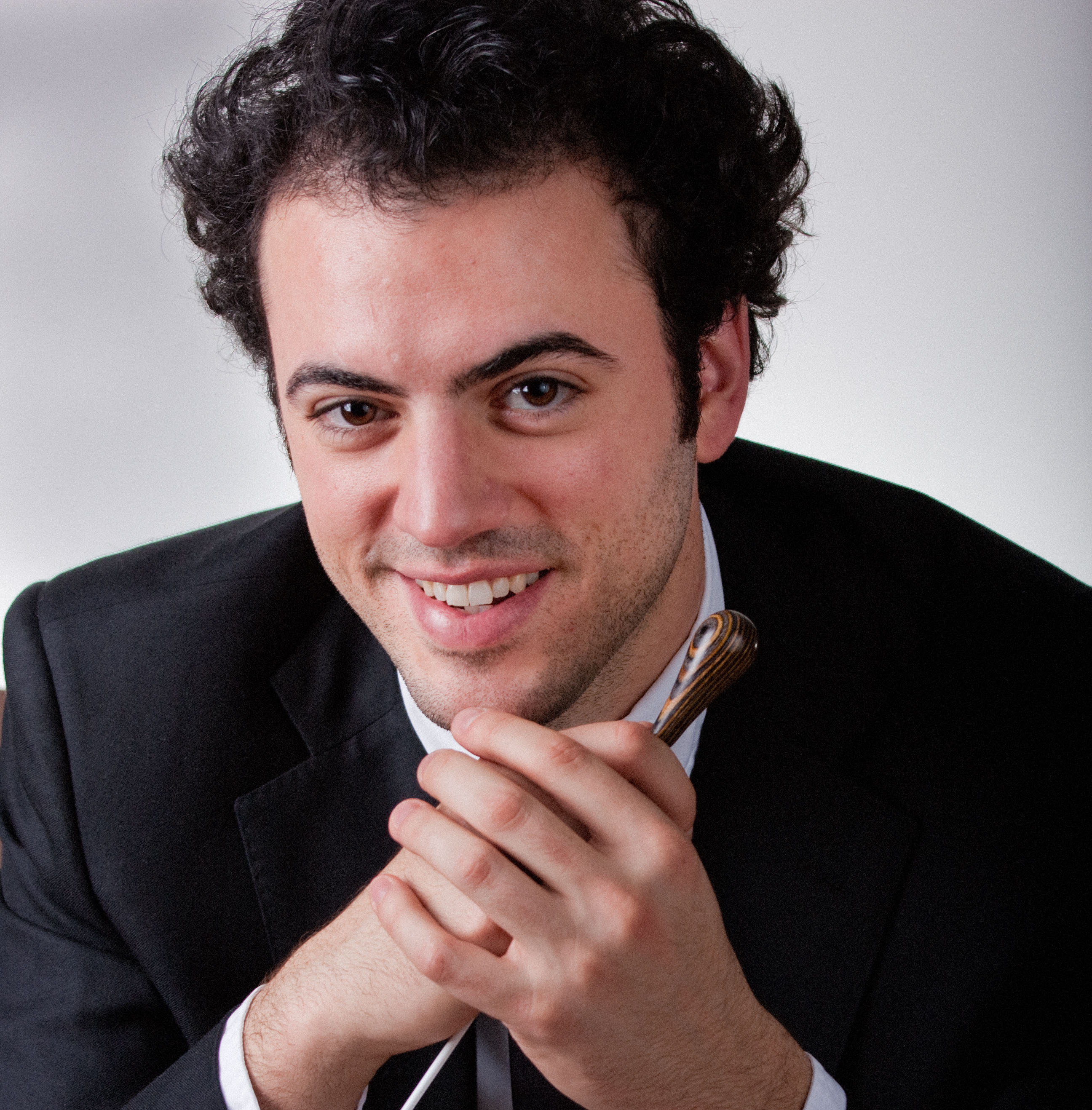 Hailed by the New York Times as “an interpretive dynamo,” conductor and cellist Eric Jacobsen has built a reputation for engaging audiences with innovative and collaborative programming projects. As co-founder and Music Director of adventurous orchestra The Knights and a founding member of genre-defying string quartet Brooklyn Rider, he may take credit for helping to ensure “the future of classical music in America” (Los Angeles Times).
Hailed by the New York Times as “an interpretive dynamo,” conductor and cellist Eric Jacobsen has built a reputation for engaging audiences with innovative and collaborative programming projects. As co-founder and Music Director of adventurous orchestra The Knights and a founding member of genre-defying string quartet Brooklyn Rider, he may take credit for helping to ensure “the future of classical music in America” (Los Angeles Times).
Storm Large, singer
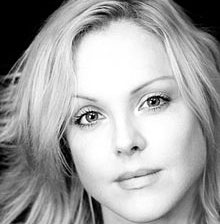
Storm Large: musician, actor, playwright, author, awesome. She shot to national prominence in 2006 as a finalist on the CBS show Rock Star: Supernova, where despite having been eliminated in the week before the finale, Storm built a fan base that follows her around the world to this day.
Gyan Riley, bass
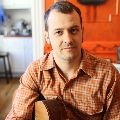
Gyan Riley won his first guitar in a raffle when he was 12 years old. After learning all of the songs in his cassette collection by ear, he began his life-long adventure in music, becoming the first full-scholarship graduate guitar student at the San Francisco Conservatory.
Sarah Rothenberg, piano
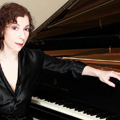 Sarah Rothenberg is a pianist of “heart, intellect and fabulous technical resources” (Fanfare) and “a prolific and creative thinker” (Wall Street Journal) who is recognized internationally for her innovative interdisciplinary performances linking music to literature and visual art. Active as performer, writer, concert curator and institution builder, she has been artistic director of Da Camera in Houston since 1994, general director since 2011, and previously was co-founder of the Bard Music Festival.
Sarah Rothenberg is a pianist of “heart, intellect and fabulous technical resources” (Fanfare) and “a prolific and creative thinker” (Wall Street Journal) who is recognized internationally for her innovative interdisciplinary performances linking music to literature and visual art. Active as performer, writer, concert curator and institution builder, she has been artistic director of Da Camera in Houston since 1994, general director since 2011, and previously was co-founder of the Bard Music Festival.
Joshua Rubin, clarinet
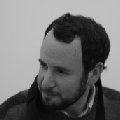
Joshua Rubin is a founding clarinetist and the co-artistic director of the International Contemporary Ensemble (ICE), where he oversees the creative direction of more than 60 concerts per season in the United States and abroad. As a clarinetist, the New York Times has praised him as “incapable of playing an inexpressive note.”
Wilfried Wendeling, video & live electronic music designer
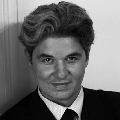 Born in a family of theater and fascinated by connections between scene, text and music, Wilfried Wendling has already realized about 15 multidisciplinary shows, presented in many theaters and operas, on texts of Beckett, Camus, Nietzsche, Perec, Queneau, Jouet, Müller, or Boltanski. His musical compositions are also played on numerous stages and festivals. As a musician and\or video director, he has collaborated with numerous artists of many disciplines. Wilfried Wendling is at present director of France’s La Muse en Circuit, National Centre of Musical Creation.
Born in a family of theater and fascinated by connections between scene, text and music, Wilfried Wendling has already realized about 15 multidisciplinary shows, presented in many theaters and operas, on texts of Beckett, Camus, Nietzsche, Perec, Queneau, Jouet, Müller, or Boltanski. His musical compositions are also played on numerous stages and festivals. As a musician and\or video director, he has collaborated with numerous artists of many disciplines. Wilfried Wendling is at present director of France’s La Muse en Circuit, National Centre of Musical Creation.
John Cage
 John Milton Cage Jr. (September 5, 1912 – August 12, 1992) was an American composer, music theorist, writer, and artist. A pioneer of indeterminacy in music, electroacoustic music, and non-standard use of musical instruments, Cage was one of the leading figures of the post-war avant-garde. Critics have lauded him as one of the most influential American composers of the 20th century. He was also instrumental in the development of modern dance, mostly through his association with choreographer Merce Cunningham, who was also Cage’s romantic partner for most of their lives.
John Milton Cage Jr. (September 5, 1912 – August 12, 1992) was an American composer, music theorist, writer, and artist. A pioneer of indeterminacy in music, electroacoustic music, and non-standard use of musical instruments, Cage was one of the leading figures of the post-war avant-garde. Critics have lauded him as one of the most influential American composers of the 20th century. He was also instrumental in the development of modern dance, mostly through his association with choreographer Merce Cunningham, who was also Cage’s romantic partner for most of their lives.
Henry Cowell
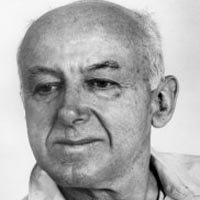
Henry Cowell (1897-1965), was born in Menlo Park, California. The “godfather of the American experimental tradition” (in the words of Alex Ross), got an early start. While still young Cowell’s mother encouraged him to purchase a piano and, something of a child prodigy, he would give private recitals featuring his early compositions, including Anger Dance (1914).
Lou Harrison
 Lou Harrison (1917 – 2003) was an American musical pioneer, composing works that incorporated Javanese gamelan and non-Western influences and explored the use of alternate tunings and new instruments. Spending much of his youth on the West Coast, he studied with Henry Cowell and Arnold Schoenberg, before moving to New York to work with Virgil Thomson. In addition to composing, Harrison also worked tirelessly promote the music of Charles Ives, bringing the composer to the notice of the musical world and conducting the first performances if his Symphony No. 3.
Lou Harrison (1917 – 2003) was an American musical pioneer, composing works that incorporated Javanese gamelan and non-Western influences and explored the use of alternate tunings and new instruments. Spending much of his youth on the West Coast, he studied with Henry Cowell and Arnold Schoenberg, before moving to New York to work with Virgil Thomson. In addition to composing, Harrison also worked tirelessly promote the music of Charles Ives, bringing the composer to the notice of the musical world and conducting the first performances if his Symphony No. 3.
Michael Harrison
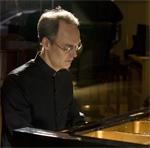 Michael Harrison, composer and pianist, has been called “an American Maverick” by Philip Glass. Through his expertise in “just intonation” tunings, Indian ragas and rhythmic cycles, he has created “a new harmonic world…of vibrant sound” (The New York Times). With a personal style that transcends the ages, his music is both forward looking and deeply rooted in different forms of traditional music.
Michael Harrison, composer and pianist, has been called “an American Maverick” by Philip Glass. Through his expertise in “just intonation” tunings, Indian ragas and rhythmic cycles, he has created “a new harmonic world…of vibrant sound” (The New York Times). With a personal style that transcends the ages, his music is both forward looking and deeply rooted in different forms of traditional music.
Glenn Kotche
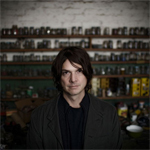 For a percussionist and composer as energetic, inquisitive and versatile as Glenn Kotche, it’s his sense of balance—his ability to thrive in different and seemingly disparate worlds—that really makes him stand out as a musician. Since 2001, Kotche has been the rhythmic anchor in Wilco, one of the most beloved rock bands on the planet.
For a percussionist and composer as energetic, inquisitive and versatile as Glenn Kotche, it’s his sense of balance—his ability to thrive in different and seemingly disparate worlds—that really makes him stand out as a musician. Since 2001, Kotche has been the rhythmic anchor in Wilco, one of the most beloved rock bands on the planet.
David Lang
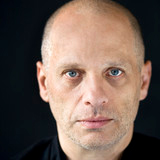 Passionate, prolific, and complicated, composer David Lang embodies the restless spirit of invention. Lang is at the same time deeply versed in the classical tradition and committed to music that resists categorization, constantly creating new forms. In the words of The New Yorker, “With his winning of the Pulitzer Prize for the little match girl passion (one of the most original and moving scores of recent years), Lang, once a postminimalist enfant terrible, has solidified his standing as an American master.”
Passionate, prolific, and complicated, composer David Lang embodies the restless spirit of invention. Lang is at the same time deeply versed in the classical tradition and committed to music that resists categorization, constantly creating new forms. In the words of The New Yorker, “With his winning of the Pulitzer Prize for the little match girl passion (one of the most original and moving scores of recent years), Lang, once a postminimalist enfant terrible, has solidified his standing as an American master.”
Steve Reich
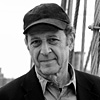 From his early taped speech pieces It’s Gonna Rain (1965) and Come Out (1966) to his and video artist Beryl Korot’s digital video opera Three Tales (2002), Steve Reich’s path has embraced not only aspects of Western Classical music, but the structures, harmonies, and rhythms of non-Western and American vernacular music, particularly jazz. “There’s just a handful of living composers who can legitimately claim to have altered the direction of musical history and Steve Reich is one of them,” states The Guardian (London).
From his early taped speech pieces It’s Gonna Rain (1965) and Come Out (1966) to his and video artist Beryl Korot’s digital video opera Three Tales (2002), Steve Reich’s path has embraced not only aspects of Western Classical music, but the structures, harmonies, and rhythms of non-Western and American vernacular music, particularly jazz. “There’s just a handful of living composers who can legitimately claim to have altered the direction of musical history and Steve Reich is one of them,” states The Guardian (London).
Bright Sheng
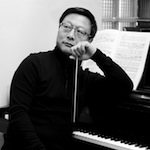
MacArthur Fellow Bright Sheng was born on December 6th, 1955, in Shanghai, China, and moved to New York in 1982. He is currently the Leonard Bernstein Distinguished University Professor at University of Michigan, and the Distinguished Artist-in-Residence at Aaron Copland School of Music of Queens College, CUNY.
Rand Steiger
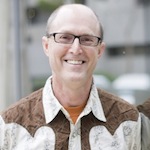 Rand Steiger’s music has been commissioned and performed by many ensembles, including the American Composers Orchestra, Boston Musica Viva, Ensemble Intercontemporain, International Contemporary Ensemble, Lontano, Los Angeles Chamber Orchestra, NYNME, Prism Quartet, San Diego Symphony, San Francisco Contemporary Music Players, St. Paul Chamber Orchestra, Talea Ensemble, and the Los Angeles Philharmonic, where he served as Composer Fellow. Soloists he has composed for include Matthew Barley, Maya Beiser, Claire Chase, Daniel Druckman, Peter Evans, Alan Feinberg, George Lewis, Susan Narucki, Vicki Ray, and Steven Schick.
Rand Steiger’s music has been commissioned and performed by many ensembles, including the American Composers Orchestra, Boston Musica Viva, Ensemble Intercontemporain, International Contemporary Ensemble, Lontano, Los Angeles Chamber Orchestra, NYNME, Prism Quartet, San Diego Symphony, San Francisco Contemporary Music Players, St. Paul Chamber Orchestra, Talea Ensemble, and the Los Angeles Philharmonic, where he served as Composer Fellow. Soloists he has composed for include Matthew Barley, Maya Beiser, Claire Chase, Daniel Druckman, Peter Evans, Alan Feinberg, George Lewis, Susan Narucki, Vicki Ray, and Steven Schick.
James Tenney
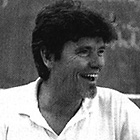 James Tenney (1934–2006) was born in Silver City, New Mexico, and grew up in Arizona and Colorado, where he received his early training as a pianist and composer. He attended the University of Denver, the Juilliard School of Music, Bennington College, and the University of Illinois. His teachers and mentors included Eduard Steuermann, Chou Wen-Chung, Lionel Nowak, Carl Ruggles, Lejaren Hiller, Kenneth Gaburo, Edgard Varèse, Harry Partch, and John Cage.
James Tenney (1934–2006) was born in Silver City, New Mexico, and grew up in Arizona and Colorado, where he received his early training as a pianist and composer. He attended the University of Denver, the Juilliard School of Music, Bennington College, and the University of Illinois. His teachers and mentors included Eduard Steuermann, Chou Wen-Chung, Lionel Nowak, Carl Ruggles, Lejaren Hiller, Kenneth Gaburo, Edgard Varèse, Harry Partch, and John Cage.

